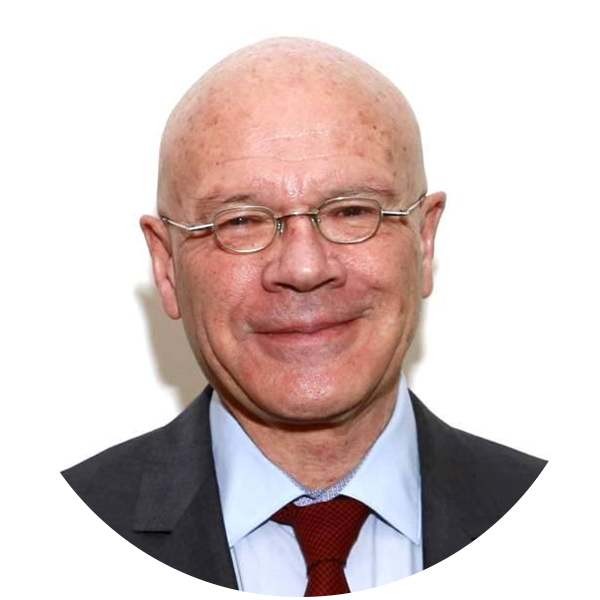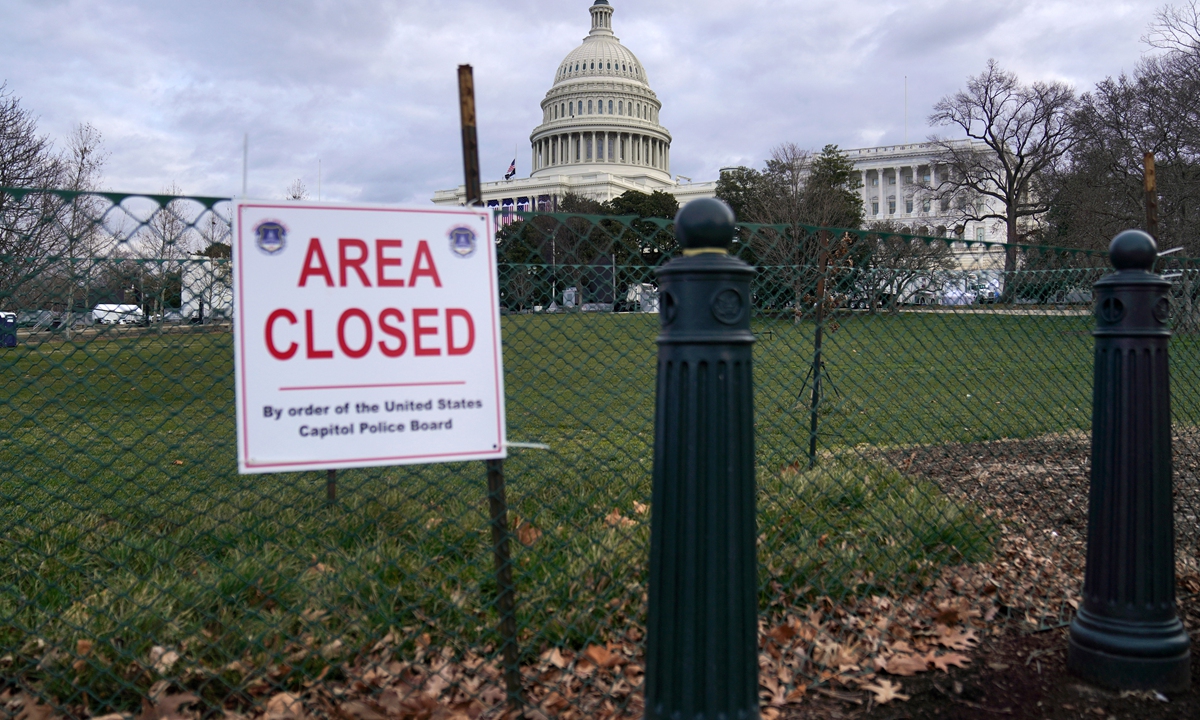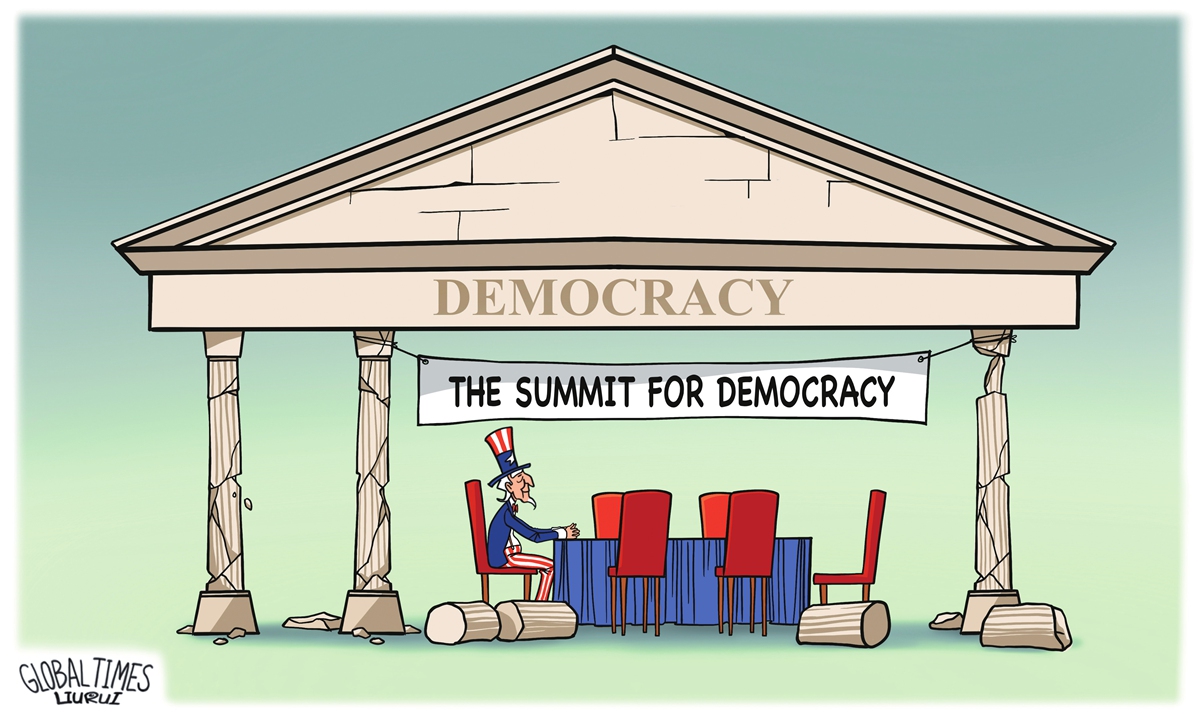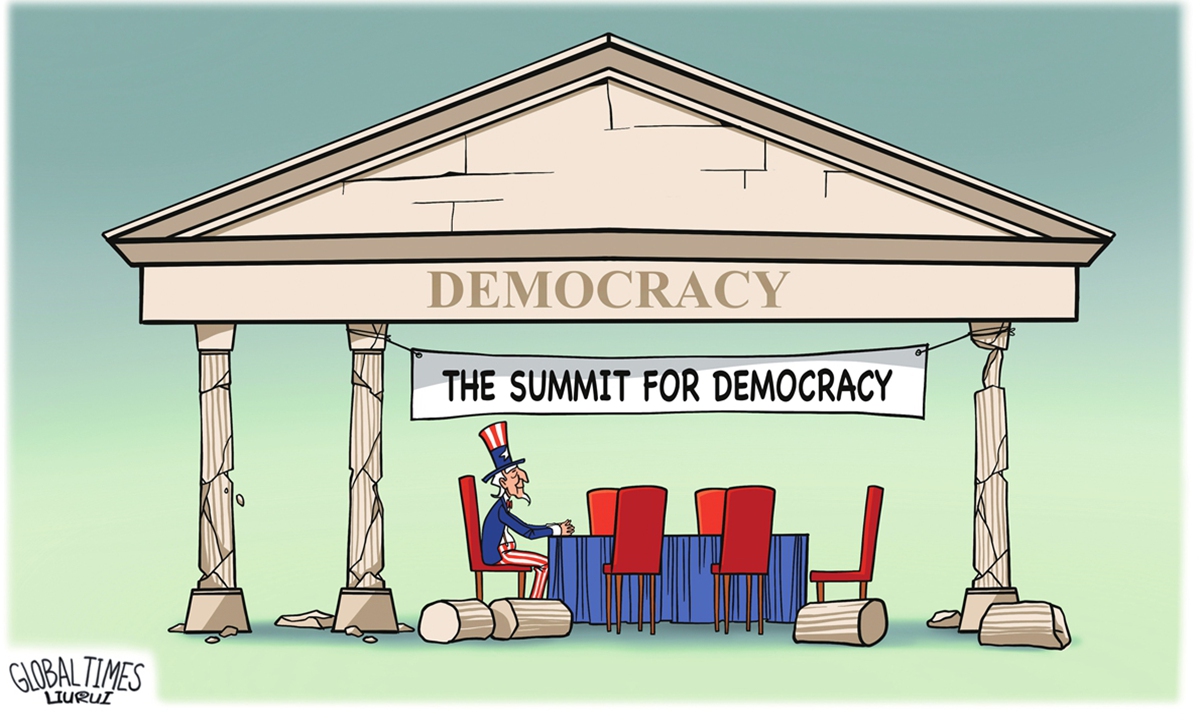Supporters of US President Donald Trump protest outside the US Capitol on Wednesday, in Washington, DC. Demonstrators breached security and entered the Capitol as Congress debated the 2020 presidential election Electoral Vote Certification. Photo: AFP
Martin Jacques: Western concept of democracy lacks historical context
There is something more than a little ironic about President Biden's Summit for Democracy this week. The intention is blindingly obvious: to rally the troops in favour of Western-style democracy and draw a line in the sand between "democracy" (ie, the West) and "autocracy" (ie, China and Russia). In this Biden faces two huge problems, which will get little or no airing at the Summit. First, the Western democracies are in serious difficulties. And second, that China, in terms of governance, has been seriously out-performing the West.
The US talks about democracy in the manner of a slick TV advert. It is all good and no bad. It is timeless. It has long reigned and will reign forever. It cannot be improved upon. This, of course, is nonsense. No form of governance has, or will, last indefinitely. There are multiple signs that Western democracy is losing its popularity. Numerous Western polls have indicated growing disillusionment in their political systems.
Ultimately, any form of governance depends upon its ability to deliver. Whatever the fancy words, this is the bottom line. If it fails to deliver, then people will look for alternative forms of governance. Western governance was at its most successful during the long boom between 1945 and the mid-1970s. It delivered rapid economic growth, full employment, generous welfare reforms and prosperity. In the 1959 general election, the British Conservative Prime Minister ran on the slogan "You've never had it so good." He was right. And the Conservatives won big time. Even during the following rather less successful period between 1980 and 2007, Western governance still worked after a fashion. The turning-point was the Western financial crisis in 2008, the worst since 1931.
Ever since then, living standards in the West have struggled to return to even where they were in 2007. All the Western economies have remained on life-support, with zero or near zero interest rates, following the financial crisis. Their economic woes had political consequences, with growing disillusionment in the mainstream political parties and their leaders and, more seriously, in societal elites and governing institutions. The most dramatic case was the United States, the citadel of Western democracy. The reasons for the disaffection go back long before 2008: nearly half of all Americans have experienced static or falling living standards since 1980. Trump gave voice to the anti-establishment anger. His attitude towards democracy is, to put it mildly, unclear, as his covert support for the Insurrection at Capitol Hill last January well illustrates. Biden won the 2020 presidential election, but what will happen in 2024 is anyone's guess. The country is deeply divided and polarised to the point where there are almost two Americas. For the first time since the Civil War, there are serious doubts among Americans as to whether their democracy can survive.
Democracy works in good times but not so well in bad times. Between 1918 and 1939, a large majority of European states lived under various forms of dictatorship for part of, or most of, that period. Democracies were, for the most part, few and far between. The overriding reason was the Great Depression, with falling living standards, huge unemployment, impoverishment, racism, nationalism, and acute political polarisation.
Even if Western-style democracy survives, and it likely will in most Western countries, such are its deep roots, it will enjoy nothing of the elan and prestige it possessed during its heyday in the long boom, or even between 1980 and 2007. The reason is simple. Between 1945 and 2000, the West dominated the world. In 1970 it accounted for two-thirds of global GDP. The United States was by far the dominant country. Now the West accounts for rather less than half of global GDP while China, in terms of size, is on a par with America. We are in the process of transitioning to a post-Western world. Domestically and internationally, Western leaders enjoy much less prestige and authority than they did during the second half of the 20th century. Compare the regard in which Roosevelt, Eisenhower and Kennedy were held with that for George W Bush, Trump and Biden. And the same can be said of the declining respect for the US political system. The allure of democracy has greatly diminished.
The rise of China since 1978 has become a new measure of the performance of the United States and the West. Over this period China has out-performed the West in terms of delivery: the supercharged growth rate, the transformation in living standards, the huge reduction in poverty, the increase in life expectation, the long run social stability and the very high approval ratings. The way in which China has handled the pandemic, with just 4,636 deaths compared with 787,695 deaths in the US, is a powerful endorsement of Chinese governance and a shameful exposure of that in the US. Western democracy is under huge pressure both internally and externally. And the gulf between the relative performance between the US and China is set to grow ever wider.
These are the questions that should be discussed at the Summit for Democracy. But they won't be.









